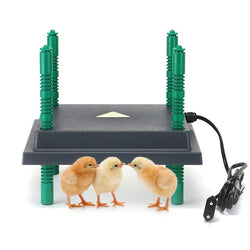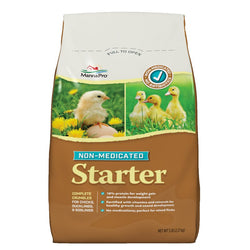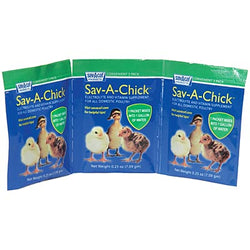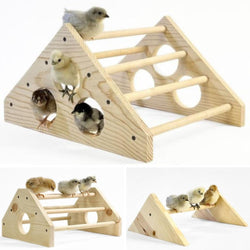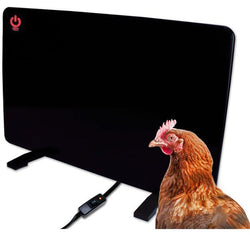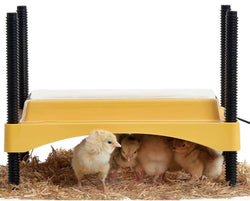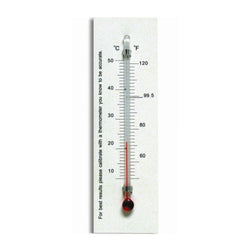Why did my rooster suddenly become aggressive?
Back to blog
Why did my rooster suddenly become aggressive?|Roosters can sometimes be a bit aggressive! One important thing to remember is that they see themselves as the protectors of "their" hens, so they may not take kindly to anything that scares the girls or causes them to squawk.
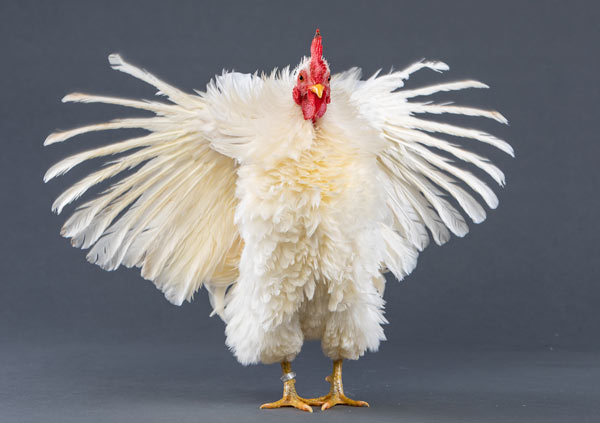
Also, they are geared not only to be looking for danger from ground predators like dogs, but also to look for danger from above (like hawks!). That means that sometimes even carrying a feed bag on your shoulder or taking off a sunhat quickly can cause their protective instincts to kick in!
For the most part, though, roosters are wonderful to have around. They try to protect their hens from predators, both by alerting the flock to predators and often (with especially brave roosters!) by being the first to engage the predator. However, roosters can also be problematic, if you're not sure how to deal with some of their behaviors.
Many roosters will go through a period at about five or six months old where they suddenly become more aggressive. This is because they are reaching sexual maturity, and they suddenly have new hormones racing through their bodies, and begin crowing, among other things! (If the crowing is bothering your neighbors, consider the no-crow rooster collar.)
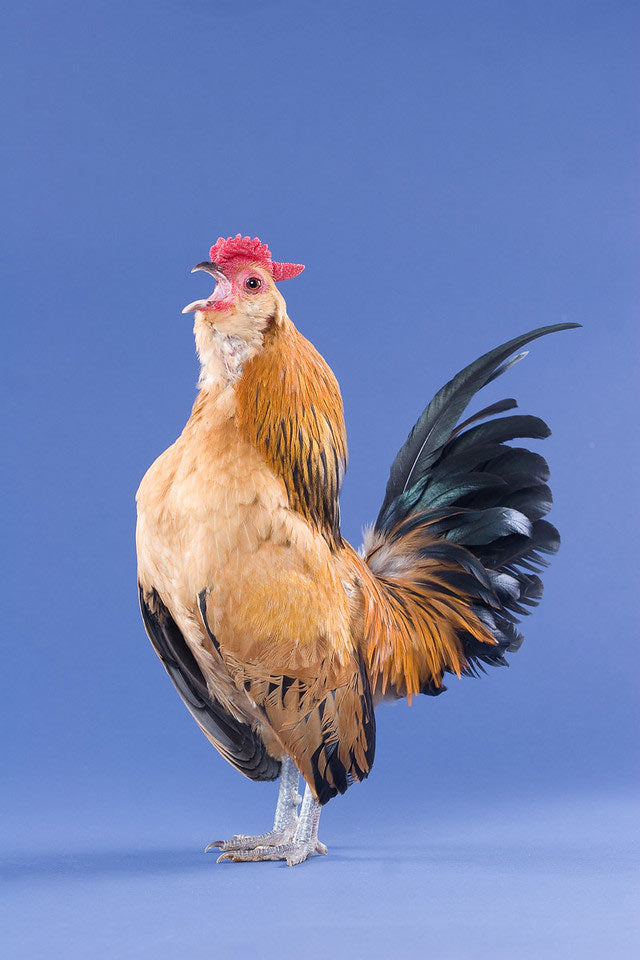
Roosters will settle down somewhat after a few months, because they'll have grown more used to the hormonal rush! One thing that often works when dealing with a cranky rooster is to carefully pick him up and carry him around with me while I do some "chicken chores." For example, I will hold him while I refill the feeder or check for eggs and so forth. Carry him around, holding him firmly but without hurting him at all. He may struggle a bit at first, but then he realizes he is in no danger and that you are in control.
The idea is to place yourself at the top of the pecking order without engaging in aggressive "chicken" behaviors like fighting, stamping at him or kicking. If you kick him or stamp at him, not only is this mean, but he will interpret your behavior as a challenge: you are suddenly "fightable;" you might always have some problems with aggression from him. On the other hand, a rooster is not geared to react aggressively to being carried around comfortably but firmly in a non-threatening way. He will realize that you are a creature at the top of the pecking order, but one that it does no good to challenge.
Carefully carry him around for 10 minutes or so every day, and within a couple of weeks if not significantly less, it is likely he will stop challenging you or your family. There are some breeds of chickens that are notorious for aggressive roosters, however, particularly the Rhode Island Red. This technique should still work with them, but you may have to reinforce it every so often by picking him up again once a day for a few days if they start to feel cocky again!

Also, they are geared not only to be looking for danger from ground predators like dogs, but also to look for danger from above (like hawks!). That means that sometimes even carrying a feed bag on your shoulder or taking off a sunhat quickly can cause their protective instincts to kick in!
For the most part, though, roosters are wonderful to have around. They try to protect their hens from predators, both by alerting the flock to predators and often (with especially brave roosters!) by being the first to engage the predator. However, roosters can also be problematic, if you're not sure how to deal with some of their behaviors.
Many roosters will go through a period at about five or six months old where they suddenly become more aggressive. This is because they are reaching sexual maturity, and they suddenly have new hormones racing through their bodies, and begin crowing, among other things! (If the crowing is bothering your neighbors, consider the no-crow rooster collar.)

Roosters will settle down somewhat after a few months, because they'll have grown more used to the hormonal rush! One thing that often works when dealing with a cranky rooster is to carefully pick him up and carry him around with me while I do some "chicken chores." For example, I will hold him while I refill the feeder or check for eggs and so forth. Carry him around, holding him firmly but without hurting him at all. He may struggle a bit at first, but then he realizes he is in no danger and that you are in control.
The idea is to place yourself at the top of the pecking order without engaging in aggressive "chicken" behaviors like fighting, stamping at him or kicking. If you kick him or stamp at him, not only is this mean, but he will interpret your behavior as a challenge: you are suddenly "fightable;" you might always have some problems with aggression from him. On the other hand, a rooster is not geared to react aggressively to being carried around comfortably but firmly in a non-threatening way. He will realize that you are a creature at the top of the pecking order, but one that it does no good to challenge.
Carefully carry him around for 10 minutes or so every day, and within a couple of weeks if not significantly less, it is likely he will stop challenging you or your family. There are some breeds of chickens that are notorious for aggressive roosters, however, particularly the Rhode Island Red. This technique should still work with them, but you may have to reinforce it every so often by picking him up again once a day for a few days if they start to feel cocky again!
